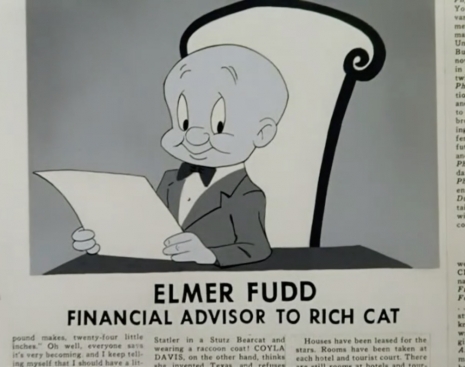
Within a few years of the end of World War II, a perceived need to stamp out any trace of leftist ideas led to the scourge of McCarthyism and a heavy emphasis on what I consider to be the Chamber of Commerce outlook on life, which led to brittle pro-capitalist maxims such as “what’s good for General Motors is good for America,” which derived from a comment made by Charles Erwin Wilson (formerly an executive at that company) during his confirmation hearings to become Eisenhower’s Secretary of Defense.
As Jeet Heer pointed out in an insightful tweetstorm over the weekend, the election of Labour candidate Clement Attlee to become British Prime Minister in 1945 was a deeply unsettling moment for U.S. capitalist interests. After all, if SOCIALISM could (gasp) prosper in the United Kingdom of all places, why, it could happen anywhere, couldn’t it? Within just a few years you had the Alfred P. Sloan Foundation (started by some other GM muckety-muck) shoveling money in the general direction of Isadore “Friz” Freleng to concoct a few amusing cartoons featuring Sylvester and Elmer Fudd to promote the wisdom of the capitalist techniques of using stockholder investments to finance much-needed infrastructure, a process that would inevitably enrich the working masses.
At what might be called the high point of McCarthy’s paranoid blacklist—1954 to 1956—the Alfred P. Sloan Foundation sponsored three Warner Bros. cartoons—the titles were “By Word of Mouse” (1954), “Heir-Conditioning” (1955), and “Yankee Dood It” (1956). A friend points out that Warner Bros., in taking the Sloan money, would have had every incentive to take the heat off of their own creative staff, which (it can be presumed) had more than a few left-leaning types on it. If you ever made a habit of watching Looney Tunes cartoons after school (my era for that hobby was the late 1970s), it’s almost certain that you saw these animated attempts to convince you of the superiority of capitalism—not exactly the usual subject matter of afternoon cartoon antics.

The capitalist propaganda hardly have been more overt—in all three cartoons the antics grind to a halt while a favored character steps up and explicitly feeds the audience a condensed presentation of the virtues of the capitalist system. In “By Word of Mouse,” German mouse Hans visits his American cousin Willy, who lives in a department store named “Stacy’s.” Hans spends much of the cartoon goggling at the unimaginable vitality of the American system—gesturing at a highway crammed with vrooming jalopies, Hans can’t grok how many plutocrats could possibly have so many new cars. Street-smart Willy blandly replies that those are regular workers, and a lot of those cars aren’t all that new—a nation full of car owners being old hat to him. Eventually they visit a professor mouse who explains via multiple charts why the existence of Rival Department Store (yes, that’s the name) obliges Stacy’s to cut costs in order to maximize sales, which ends up enriching the labor force.
In “Heir-Conditioning,” Sylvester the Cat inherits multiple millions of dollars, so understandably, the alley cats in the neighborhood descend on his residence in order to get ahold of some moola. Elmer Fudd plays a “financial advisor” who tries to get the unwilling feline to invest his piles of cash in order to increase his own profits while enriching the rest of society—Elmer even hauls out a film projector to demonstrate the relative poverty of workers 50 years previous—after all, they hadn’t reaped the benefits of mass production yet. Hilariously, when Sylvester temporarily absconds with a large satchel full of paper currency and offers to give it to the alley cats, they tell him to listen to his bald-headed analyst and invest the money.
The oddest entry in the Sloan/WB canon might be the last one, titled “Yankee Dood It.” That short takes its plot elements from the 19th-century story “The Elves and the Shoemaker,” which became one of the Grimms’ collection of fairy tales. Here, Elmer is the “King of industrial Elves” and magically materializes at the workshop of the “Elf Shoe Company,” whose proprietor refuses to infest in the needed machinery to increase his profits, etc. This time, instead of showing a film, Elmer causes a screen to materialize, on which he walks the timid entrepreneur through a sort of slide show about the need to use a proper factory instead of unpaid artisanal elves. Reason magazine writer Tim Cavanaugh noted that “Yankee Dood It” is “an interesting window on the politics of the fabulous fifties: not just that somebody felt the need to argue that productivity benefits somebody besides greedy bosses, but that they made the argument through the commander of a militarized corps of elves.”
All three of these cartoons appear on the DVD Looney Tunes Golden Collection: Volume 6, but you can watch them after the jump.
After the jump, watch Elmer in full “Chamber of Commerce” mode…....





